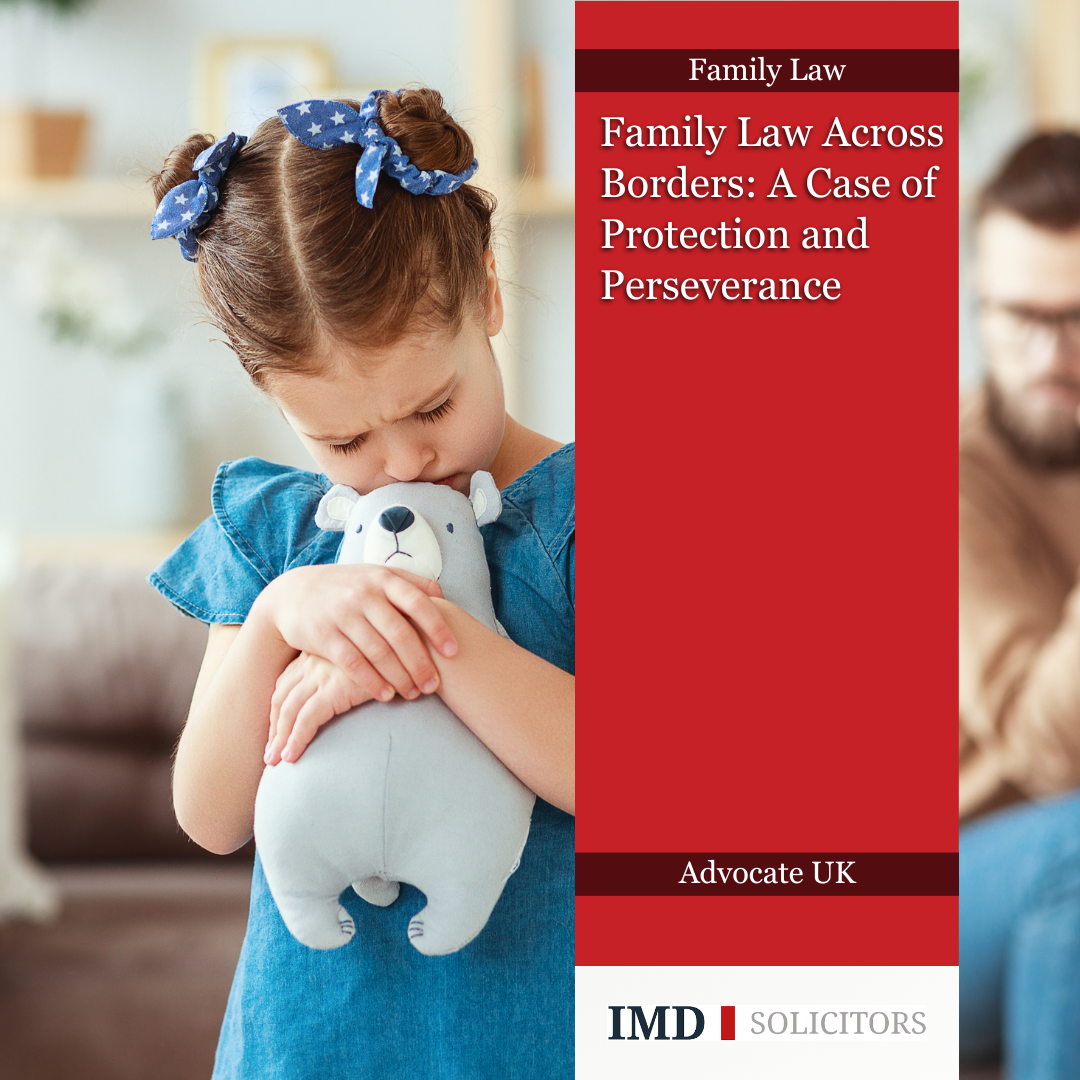
The realm of family law often intersects with issues of international jurisdiction, personal safety, and child welfare. A recent case undertaken by IMD Solicitors LLP represents these challenges, involving a prohibited steps order issued without the client’s knowledge, a background of domestic abuse covering multiple countries, and the complex process of safeguarding the client and her child. This case study provides an in-depth look at the legal proceedings, the strategic approaches employed, and the implications for family law practice, especially in cases with an international dimension.
Our client, who had endured a long abusive marriage, was caught off guard by a prohibited steps order issued in 2014, which she found out about years later. This order was a significant impediment, preventing her from obtaining travel documents for her son. Originating from a culture where arranged marriages were customary, she found herself in a manipulative trap set by her husband, leading to her and her son being trapped in Jordan because they were misled with promises of getting a divorce.
The situation escalated when her husband secured the prohibited steps order in the UK, while simultaneously instituting a travel ban in Jordan. This action later culminated with our client and her son’s passports being stolen by the Respondent during a trip to Dubai. Whilst the client was able to obtain a new passport, she was unable to do the same for her son who was subject to the order of 2014 obtained on an ex-parte basis by his father. This resulted in the client and her son being stranded in Dubai for weeks, with the son missing school and risking the loss of his place at the school. Legal Challenges and Strategies
The cornerstone of our legal strategy involved challenging the 2014 prohibited steps order. The application to discharge this order was meticulously prepared, highlighting the client’s unawareness of the order and its basis on deceit and manipulation. This phase required a deep dive into the client’s history, underlining the absence of her consent and knowledge, as well as the change of circumstances over the past 10 years, thereby questioning the order’s validity and relevance in the present.
Concurrently, the pressing issue of ongoing abuse and harassment by the ex-husband necessitated immediate action. Our application for a non-molestation order was strategically made without notice to the ex-husband to prevent further harm and to circumvent potential interference with the legal process. This step was underpinned by the imperative to demonstrate an imminent risk of harm, thereby justifying the urgency and necessity of the order.
The Role of Protective Orders: The effectiveness of non-molestation orders as tools for safeguarding clients and their children was evident. A non-molestation order is a legal protection mechanism used primarily in the context of family law to protect individuals from harassment, violence, or threats of violence from a partner, ex-partner, or family member. It aims to ensure the safety of the person applying for the order (the applicant) by prohibiting the other party (the respondent) from engaging in certain behaviours. These behaviours can include any form of harassment, physical violence, intimidation, or direct or indirect contact that can harm the applicant or their children.
The order is issued by a court and can include specific prohibitions tailored to the circumstances of the case, such as banning the respondent from coming within a certain distance of the applicant’s home or workplace, or from making any form of contact with the applicant. If the respondent breaches the order, it is considered a criminal offense, and they can be arrested, charged, and potentially convicted, leading to fines, a criminal record, or imprisonment.
However, in our case the challenges were in securing these orders, particularly without notice, which underscored the need for a robust evidentiary base and compelling legal advocacy.
The successful discharge of the prohibited steps order and the acquisition of a non-molestation order marked a significant milestone in our client’s journey towards safety and autonomy. This case illustrates the critical intersection of family law with international jurisdictions, the imperative for comprehensive legal strategies, and the nuanced understanding of cultural contexts.
For family law practitioners, this case serves as a crucial reference point for managing cases with international dimensions, emphasizing the importance of a holistic, informed, and client-focused approach. The expertise and commitment of IMD Solicitors LLP in overcoming the multifaceted legal challenges have set a precedent for handling similar cases in the future, ensuring that clients facing cross-border legal issues receive the protection and representation they deserve.
This article is for general information only and does not constitute legal or professional advice. Please note that the law may have changed since this article was published.